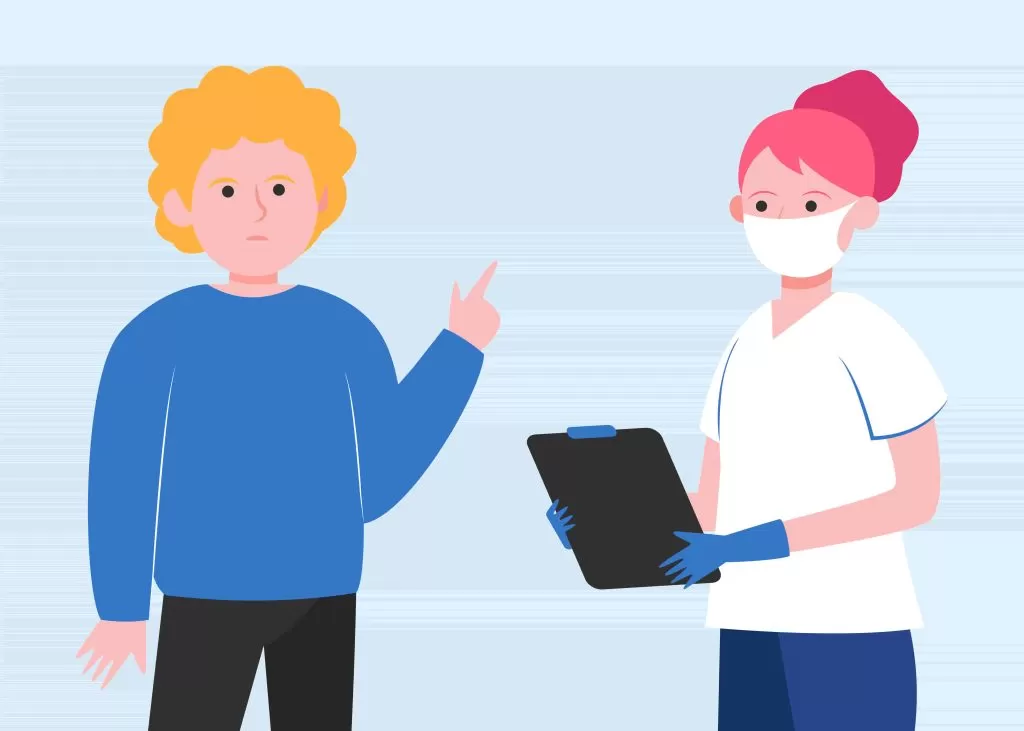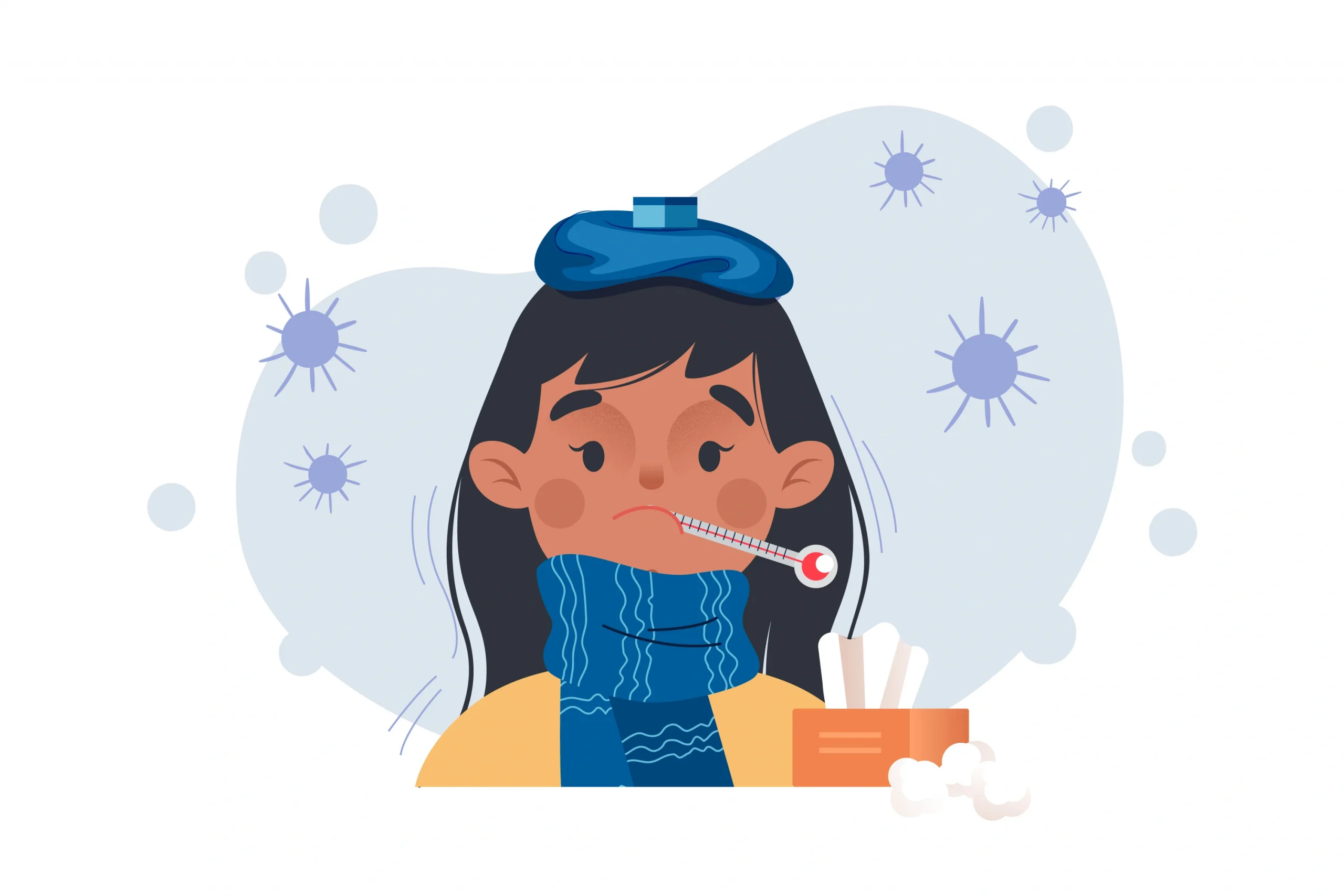Signs of Hypochondria can be a little bit tricky, especially for people who are experiencing some symptoms in their body. We must be able to know what are the real symptoms.
What is Hypochondria?
Hypochondria is an overwhelming fear of getting a major medical condition. It is also known as illness anxiety disorder or health anxiety. An individual’s imagination of physical signs of sickness distinguishes this disorder. People with this disorder worry excessively about all aspects of their health. They might frequently consult their doctor or invest a lot of time reading about their symptoms and potential illnesses.

Hypochondriacs frequently become worried with their health, continuously monitoring for symptoms, learning about illnesses, and seeking medical assistance for trivial or fictitious symptoms. This excessive concern can have a considerable negative impact on everyday functioning, harming a person’s relationships, job, and general quality of life. Because the symptoms of hypochondria are not always visible, it is simple to mistake it for other mental illnesses like panic disorder or obsessive-compulsive disorder.
Signs of Hypochondria Vs Necessary Concern
Its common to get headaches or stomachaches from time to time, but stressing excessively about them is not. It is acceptable to have some concerns, but if your worrying continues even after the doctor has checked you out and told you everything is alright, this is really abnormal.
In other cases, you may google any minor symptoms you experience and mistakenly interpret them for serious medical symptoms. It is definitely not typical to inflate a minor throat discomfort into throat cancer.
If it sounds like you, then it is more likely you are a hypochondriac.
Five Major Signs of Hypochondria
Between 2 and 5% of the general population is estimated to be affected by hypochondria, according to a research. People who have a history of depression, anxiety disorders, or a familial history of hypochondria are more likely to experience it. Additionally, it occurs more frequently in patients with specific medical disorders, such as chronic pain, fibromyalgia, or chronic fatigue syndrome. Below are the top 5 signs of Hypochondria ;
Too much worrying
One of the important signs of hypochondria is an excessive preoccupation with one’s health. Despite having no or just minor symptoms, those who suffer from hypochondria may have a continuous and paralyzing dread of having a catastrophic illness.
You worry too much that seemingly unimportant symptoms could indicate a significant illness. Too much of anything is always abnormal. Having concern about your own health is fine, but being convinced that minor ailments are actually horrible diseases is a significant sign of illness anxiety disorder.

A person’s job, relationships, and overall quality of life can all be negatively impacted by this excessive concern, which can also create severe suffering and impairment in everyday life. It’s vital to remember that excessive worrying is unrelated to actual symptoms; instead, the hypochondriac may experience symptoms as a source of relief or reassurance, which feeds the vicious cycle of excessive worrying.
It’s crucial to realize that this extreme concern is actually a symptom of an illness that may be treated rather than a sign of frailty or lack of willpower. People with hypochondria can learn to control their excessive concern and enhance their quality of life with the correct assistance, such as counseling or medication.
Self-doubt and Exaggeration
Self-doubt and Exaggeration are common signs of hypochondria. When you are health anxious, you check your body frequently for issues like wounds, tumors, or aches and regularly examine your body for any of these issues. You also are convinced that you may have a certain sickness just by reading about it.

The symptoms of this dread may be exaggerated and self-doubt may result. These symptoms might appear in a variety of ways. Those with hypochondria may be unsure of their capacity to identify symptoms, which makes them second-guess their judgment and seek out additional medical opinions. People with hypochondria may exaggerate or magnify the severity of their symptoms, which might result in pointless medical procedures or treatments.
People with hypochondria may pay excessive attention to minor symptoms and mistakenly perceive them as indicators of a major illness. People with hypochondria may have trouble accepting reassurance from medical professionals or loved ones that they do not have a serious disease.
Online check or online assurance
If you find yourself spending too much time online trying to diagnose the symptoms or researching every health problem obsessively then it is better you see a therapist or mental health professional. A hypochondriac frequently searches the internet in order to find the causes of bodily signs or possible diseases.

Online assurance may be sought by hypochondriacs for a number of reasons, including:
-To support their health worries and symptom complaints.
-To feel secure and comfortable.
-To learn more about a particular medical problem.
-To get assistance from people who have comparable health challenges.
-To combat emotions of isolation and loneliness.
Since they might not get assurance from their doctor or family, these people can resort to internet resources for information and support. It’s crucial to keep in mind, though, that internet information isn’t always accurate or trustworthy, which might feed the hypochondriac behavior cycle.
No belief in doctors
Not believing the professionals or seeking reassurance about not having any illness from them or any other people around you is another significant sign of having health anxiety. You also doubt the doctors that they haven’t diagnosed you properly and even switch or change hospitals or doctors only because they didn’t find anything wrong with you.

For a variety of reasons, hypochondriacs might not believe doctors. Fear of a severe underlying ailment that has been misdiagnosed or ignored is one of the key causes. As a result, those who have hypochondria may get fixated on their bodily feelings and symptoms and think of them as warning signals of a catastrophic illness. They could have mistrust for doctors, feeling that they don’t take their symptoms seriously. Some hypochondriacs may look for more information online or from unorthodox sources because they think these sources are more trustworthy.
This may also result from an inability to comprehend medical answers, which may come out as dismissive or unhelpful. Because of this, people with hypochondria can seek out second or third views, which frustrates and stresses out the medical experts they encounter with as well as themselves. This demonstrates the need of providing people with hypochondria with compassionate and comprehensive medical treatment.
Avoidance
Avoidance of people or society is one among the common signs of hypochondria and every other mental disorder. You tend to avoid your family or places or activities because you are afraid of getting any health risks. This kind of behavior may lead to strained relationships with friends or family. Similarly, you deny considering that anxiety is causing you such fear of having diseases.

For a variety of reasons, persons with hypochondria may shun other people or society. Shame and humiliation over their health issues and phobias is one of the key causes, which can make people feel self-conscious and alone. They could worry about being judged or misunderstood, which can make them anxious and make social situations challenging.
People with hypochondria may withdraw from social interactions and relationships due to their obsession with their health, which can result in feelings of loneliness and isolation. It is crucial to confront and manage their situation with compassion and assistance since this avoidance of people and society may negatively affect their mental and emotional health.
If you or your close ones have these five signs of Hypochondria, then you or them must visit the doctor for treatment.
When to see a doctor
Signs of hypochondria may be very tricky to analyze and be sure. Always keep in mind that everything in excess is hazardous. Therefore, if you discover that you are worried excessively about your health, see a doctor. When worries and fears about their health start to interfere with everyday activities and interpersonal interactions, hypochondriacs may want to see a doctor. Chronic and excessive anxiety about one’s health brought on by hypochondria can cause serious mental anguish and despair.
A medical assessment is necessary to identify the source of any physical symptoms that are distressing hypochondriacs and to establish the best course of treatment. Self-help techniques or emotional support from friends and family may occasionally fall short of meeting a person’s needs for confidence or solace, which is another sign that it may be time to seek medical assistance.
Additionally, if your relatives or friends are persistent in attempting to convince you that you have a disease, then pay attention to them and visit a doctor. It is crucial to be assessed by professionals as symptoms can be connected to medical conditions.
A crucial step in controlling hypochondria and making sure people get the treatment and assistance they require is going to the doctor. Whether symptoms are brought on by an underlying medical condition or are the result of stress and worry, a doctor may conduct a thorough assessment and assist patients in understanding the underlying source of their symptoms. Additionally, they may offer confidence and direction on how to manage their disease, including suggestions for treatment, way of life adjustments, or medication.
It’s crucial to keep in mind that hypochondria is a curable disorder, and getting medical attention is a critical first step on the road to recovery. With the right care and assistance, hypochondriacs may learn to control their worries and enhance the quality of their lives. People can discuss their health issues with a doctor in a sympathetic and encouraging setting to come up with a plan for management and treatment.
In conclusion, people with hypochondria should think about seeing a doctor if their physical symptoms are distressing them or if their fears and worries about their health are interfering with their everyday activities and relationships. To assist people manage their disease and enhance their quality of life, a doctor can conduct a thorough examination and create a treatment plan. In order to recuperate, seeking medical attention is a crucial step that shouldn’t be put off.
Please click here if you want to read more of our blogs.

